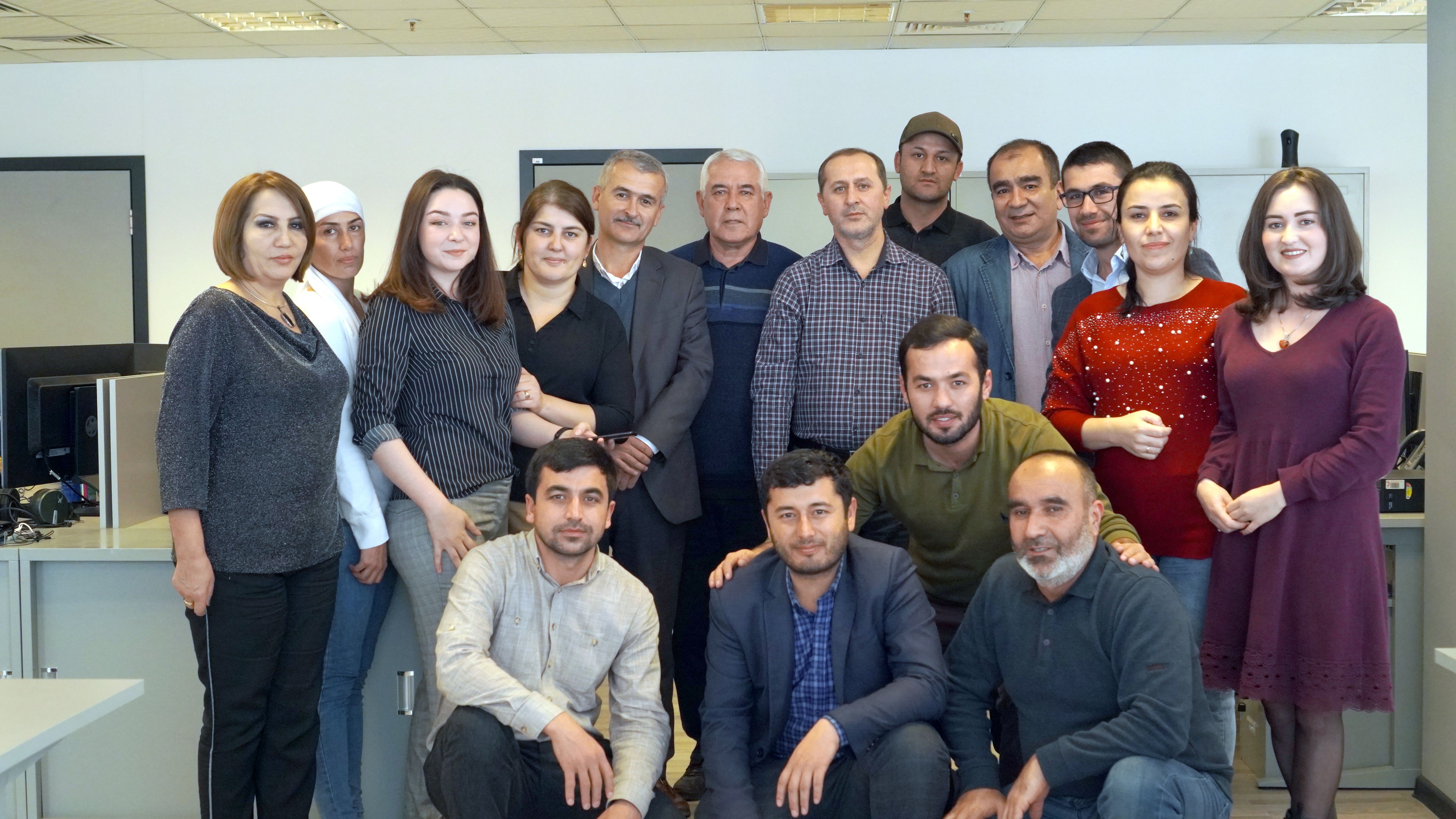Radio Ozodi, 2020 winner

 RFE/RL nominates Radio Ozodi, RFE/RL’s Tajik Service, for the 2019 David Burke Award in acknowledgement of the Service’s remarkable reporting work, which literally changed lives for Tajik audiences despite months of near-constant official harassment.
RFE/RL nominates Radio Ozodi, RFE/RL’s Tajik Service, for the 2019 David Burke Award in acknowledgement of the Service’s remarkable reporting work, which literally changed lives for Tajik audiences despite months of near-constant official harassment.
Radio Ozodi is a trusted source of local news for its Tajik audience inside Tajikistan and among the far-flung Tajik diaspora, attracting outsized audiences with reporting on issues not otherwise covered by the country’s state-run media. Operating out of its bureau in the capital, Dushanbe, Ozodi is the only Tajik-language media that consistently challenges the state’s tightly controlled media and propaganda networks by offering high-impact reporting on the most popular digital platforms about local politics and economics, societal issues, and human rights.
2019 was a remarkable year for Ozodi, because of the remarkably bold journalism that the team was able to produce despite extraordinary pressure from government authorities actively seeking to intimidate journalists and strip them of their accreditation. Through exceptional reporting of issues that would otherwise never be mentioned in Tajikistan’s media market, Ozodi changed the lives of Tajiks in the country and in the diaspora. Ozodi truly goes above and beyond to provide a vital public service to its Tajik- and Russian-speaking audiences.
Notable examples of such coverage included:
- Reporting on the human toll of extremism: On the night of April 30, 2019, 84 children arrived by plane from Baghdad to Dushanbe. Their parents had either died or been detained in Iraq because of their links to the so-called Islamic State terrorist group. The children were accompanied by the Tajik ambassador to Kuwait, Zubaidullo Zubaidov, who said at the time that the repatriation of the children had been a “long road” started by the story about Maryam. In 2018, Ozodi first brought national attention to the subject of the children left behind by reporting on a young girl – Maryam – who was orphaned after her parents died in a bombing. The Service searched endlessly for Maryam’s other relatives, which ultimately helped her come home. This reporting shifted public sentiment and created a widely held public opinion that innocent children whose parents brought them to Iraq and Syria and should not suffer there in camps or prisons, and the government should repatriate them. A year later the Tajik government succeeded in bringing back to Tajikistan 84 orphaned kids.
- Exposing lack of access to health care: After blood plasma prices increased by 20% in Tajikistan in May 2019, many families were left without the resources necessary to treat serious medical conditions. Ozodi published a report that humanized this dire consequence, focusing on a single mother with three children who had acute hematological diseases – with one 8-year-old girl not being able to get out of bed. The report brought public attention to the issue, and helped the children become registered with the Tajik National Blood Research Center to be provided with free blood components. The mother said her daughter’s condition has been improved: “I thank Ozodi, after the report we were contacted and strongly supported. I was not aware of the state benefits provided for patients with such diseases,” she said to Ozodi on May 18, 2019.
- Helping people fight against police injustice: In February 2019, Ozodi’s report about a man who said he was tortured while being held in custody by the police led to a criminal case against four police officers. The man had photo documentation and recounted in detail how he was beaten, suffocated and tortured by electric shock. Torture is a frequently occurring human rights abuse in Tajikistan, and often those who perpetrate the injustice get away with it. In this case, Ozodi’s video went viral and caused authorities to launch an investigation. After the report, another 17 people came forward to say they had also been tortured by police as well. Ultimately, the police officers stood trial, and in December 2019 were found guilty of torture. This wouldn’t have happened without RFE/RL.
With an average of 1.8 million website visits per month in 2019, Tajikistan’s most popular YouTube and Facebook presences by far (according to Socialbakers), and nearly 890,000 followers on Instagram, Ozodi’s journalistic excellence and impact were, and continue to be, recognized by its audiences — in spite of major obstacles in its path.
In 2019, the Tajik government worked relentlessly to bar RFE/RL from working legally within the country by withholding accreditation from Ozodi journalists, despite Tajik President Emomali Rahmon’s expressed support for Radio Ozodi to remain in Tajikistan.
The OSCE, The Washington Post, the Committee to Protect Journalists, Human Rights Watch, and local Tajik media advocacy groups have decried the Tajik government’s withholding of accreditation as a violation of media freedom and a means of censorship. Members of the U.S. Senate and House of Representatives sent letters to the Tajik president criticizing the use of accreditation to restrict Ozodi’s independent reporting, and stating that a failure to allow RFE/RL to operate freely could affect U.S.-Tajik relations.
This was in addition to other efforts to harass and intimidate Ozodi staff members, including a smear campaign on government websites and Facebook in which officials posted comments applauding the denial of accreditation, accusing Ozodi journalists of “incitement” and “disloyalty to the state,” and labeling the Service’s Dushanbe bureau “a nest for espionage and exploration.” The Ministry of Foreign Affairs of Tajikistan itself accused Ozodi of promoting extremism because of its reporting on groups banned in the country.
Many of these pressures continue. Despite this harsh environment, Ozodi persists in working to inform and enlighten audiences – and is critical in impacting their lives in a meaningful way through public service journalism. RFE/RL’s impact in Tajikistan – and the importance of its daily work – cannot be overstated.
